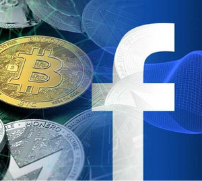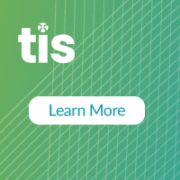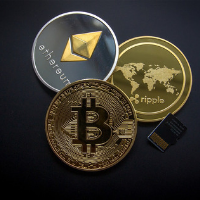Facebook and Libra: the new global currency?
| 04-07-2019 | Carlo de Meijer | treasuryXL
 Since Facebook announced to launch a new digital currency, the Libra, a complete media craze arose. The one blogger stumbled as it were over the other. And while the one group sings hosanna over this initiative (a salvation for the bankless), warning signals come especially from the supervisors and regulators part (time bomb under the global money system). And next to that there arose a great many discussions on whether or not the crypto character of the Libra. What are the chances that this Libra will really see the light? And if so, what will that mean for the existing financial system? Let’s give it a shot.
Since Facebook announced to launch a new digital currency, the Libra, a complete media craze arose. The one blogger stumbled as it were over the other. And while the one group sings hosanna over this initiative (a salvation for the bankless), warning signals come especially from the supervisors and regulators part (time bomb under the global money system). And next to that there arose a great many discussions on whether or not the crypto character of the Libra. What are the chances that this Libra will really see the light? And if so, what will that mean for the existing financial system? Let’s give it a shot.
What is the Libra?
Libra is the new declared crypto currency (based on blockchain technology) of social technology giant Facebook. Libra is meant to become the in-house currency for Facebook, Instagram and WhatsApp’s combined 2,7 billion users. An alternative digital means of payment to purchase products, sent money across borders or make donations. To enable peer-to-peer payments, a digital wallet, the Calibra will be introduced that will work with Messenger and WhatsApp.
The mission of the Libra project is to come to a simple world currency and a financial infrastructure that may help move forward the millions of unbanked people in the emerging markets. Money transfers by labour emigrants, so-called remittances, are one of the most important income sources for those people. Annually, according to the World bank, almost 500 billion of euros are being transferred via private bookings from rich to poorer countries. And that at very high fees.
The Libra Association
Libra will be controlled by an independent body, the Libra Association, that will be based in Switzerland. The Association nowadays consists of 29 founding members (including Facebook), with big names like MasterCard, PayPal, Visa, Booking Holdings, eBay, FarFetch, Lyft, Spotify and Uber. The intention is to have 100 founding members by the time it launches next year.
The Libra Association will actively manage the Libra currency for stability. Each Libra will be covered by liquid means for the full hundred percent. For every Libra that will be issued, the Libra Association will have to maintain a basket of short term government bonds and (real) fiat currency including dollars, euro and yen. If these Libras are exchanged into fiat currency, then also the coverage disappears.
Reactions
The launch of the Libra, though just in 2020, has triggered a deluge of reactions from governments, supervisory, regulatory authorities and others like the cryupto world, media etc. all over the world. Some are positively optimistic, others reacted cautious but most are sceptic or even negative. Terms like corporatocracy and techno-pocalyps were even mentioned to describe this Libra project. And that is not surprising!
Most intensive reactions came from France where the Finance Minister le Maire said that “Libra cannot … and must not happen” and that “it was out of the question that the cryptocurrency should become a sovereign currency”. He has asked central bank heads from G7 countries to write a report on the Libra by mid-July.
The BIS already has put a lot of attention on alternative currencies in its recently published annual report. The BIS warned that if big social technology companies like Facebook or Amazon, are going to dominate the financial system, that will increase the risk of system disturbances.
Other international organisations like The International Stability Board are very sceptical about the Libra plan, while the British supervisor FCA is not yet prepared to accept the Libra.
But most important, we are still awaiting the official reaction of US supervisors. The ambitions are, especial from the US, to halt the Libra development until further investigation offers the well needed answers. For that purpose the Senate Banking Committee has scheduled a hearing for July 16th, while Facebook has been invited to testify at a hearing of the Financial Services Panel on July 17th.
In the UK it could have similar scrutiny, as the Bank of England noted that
“regulators would have to consider how they’d treat this new asset class”. Though they are not that negative, the Bank of England governor Carney stated that Libra would be subject to the highest standards of regulation.
Libra is …..
…. not a cryptocurrency!
From various reactions on the Libra project it was made clear that the Libra is not a cryptocurrency, as was declared by Facebook. While cryptocurrencies are decentral, transparent and anonymous, the Libra has nothing of these characteristics.
It follows the business model of Facebook, being centralised, closed for the external world and almost without privacy for its users. Though the Libra Association in which Facebook just has a very small vote, and it is supposed to have 100 partners in total, the technology and infrastructure is in hands of Facebook.
…. not a (real) blockchain
Looking at Facebook’s Libra, it makes no real use of blockchain technology. The Libra blockchain is a very special one. There is one big block in which all transactions are being stored, very similar to a normal database. Nobody is aware, but the data at Facebook will not be transparent.
…. (more like) a private digital currency
Contrary to the well-known cryptocurrencies like Bitcoin, Ethereum and Ripple, the Libra is covered by financial assets including government debt and fiat currencies. In that sense the Libra is rather similar to private issued banknotes.
No level playing field for banks
Some see Facebook Libra just like an ordinary bank. With the introduction of the Libra, Facebook will execute the old-fashioned banking matters, in that way that via the Libra app, Calibra one can transfer money globally and instantly. So, the Libra in fact combines digital ease with the structure of a bank.
And who knows if Facebook is going to offer more than just payment services. It is very likely that they will (in the near future) broaden their services by offering credits etc. And if that is the case, Facebook is starting with their creation of money. Imagine a bank with the potential of 2.4 billion of clients that is not subject to regulation and supervision, creating a non-level playing field.
Urgent need for proper supervision and regulation
There are a range of risks when this process takes place without guidance by supervisors and regulators. A new digital currency with the potential capability of the Libra (Facebook has no less than 2.4 billion users), should be matter of both banking supervisory bodies and monetary authorities.
Think about the following: the Libra has been launched and Libra will have to keep an equal amount of hard currencies in reserve as the brought in money, that should be invested in short term, government bonds in the various currencies incl. dollars, euros and yen. If the components of the basket changes, or the number of Libra brought in by Facebook fluctuates strongly, that might have impact on the financial system.
If the Libra becomes a success it will be crucial for the functioning of the payments system that it should be subject to the highest standards of supervision. Supervisors should therefore soon come with the decision what the Libra now exactly is: a currency, an investment or something complete different.
Should central banks step in?
Another issue is: how should Central Banks react. Introducing the Libra will also cause sensibilities in the monetary field. Question that arise: will the Libra become a – although stable – currency that will be created separately from the existing system or will it be a complement?
With the introduction of the Libra, Facebook is in fact filling the gap left by the central banks on the international payments market. Key question is: what is preferable, a private global digital currency or a public variant issued by central banks.
According to editors of the Financial Times, the “Zuck-Buck” as they call the Libra will be no less than a global shadow currency, a private variant of a global system of central banks, a sort of Federal Reserve.
It is thus high time that the long-lasting debate about a digital currency issued by central banks should gather space with the possible arrival of the Libra. Just staying on the sidelines is no issue any more. The technology is there.
Why not the IMF thinking about creating an international digital currency that brings stability and meet all the privacy challenges.
Hurdles for Facebook to overcome
The Libra is not there yet. Facebook still faces many hurdles and needs to answer many questions.
I admit, there are positive sides to the Libra initiative, such as Libra’s promise to have cheaper – or even no – transfer costs, while Libra payments will be made as easy as WhatsApp. And there are the potential efficiency gains and better entrance to financial products by many unbanked which may lead to economic growth. But there are also many negative issues to be mentioned.
When talking about privacy, Facebook has not a good reputation. How will Facebook handle the privacy rules? And how is Facebook going to convince customers to give their money in play? But also, how can Facebook prevent that the Libra will also facilitate transactions that possibly may be used for criminal purposes. Therefor Facebook should show that for them it is serious in properly meeting the privacy rules.
“This money will allow this company (Facebook) to assemble even more data, which only increases our determination to regulate the internet giants”. French Finance Minister Bruno Le Maire
Another potential legal hurdle for the Libra project is to keep banking and commerce apart. To prevent conflicts of interest payments and banking are separated from the rest of the economy in the US. Depending on what data is visible for the partners in the Libra Association, there may be enough legal issues that should be solved.
And there is the size issue. According to many, Facebook is already too big and too powerful not to be supervised and regulated. In order to get an “ethical banking culture”, it is needed to make sure that institutions, crypto or not, will not be ‘Too big, to Fail’.
Facebook may also count on the appropriate competition. Such as from China by players like Alipay and We Chat. Moreover there is a big chance that also other tech companies will come with their own currency.
By the way, I am also on Facebook and have a lot of friends. Keep it like that!

Economist and researcher








